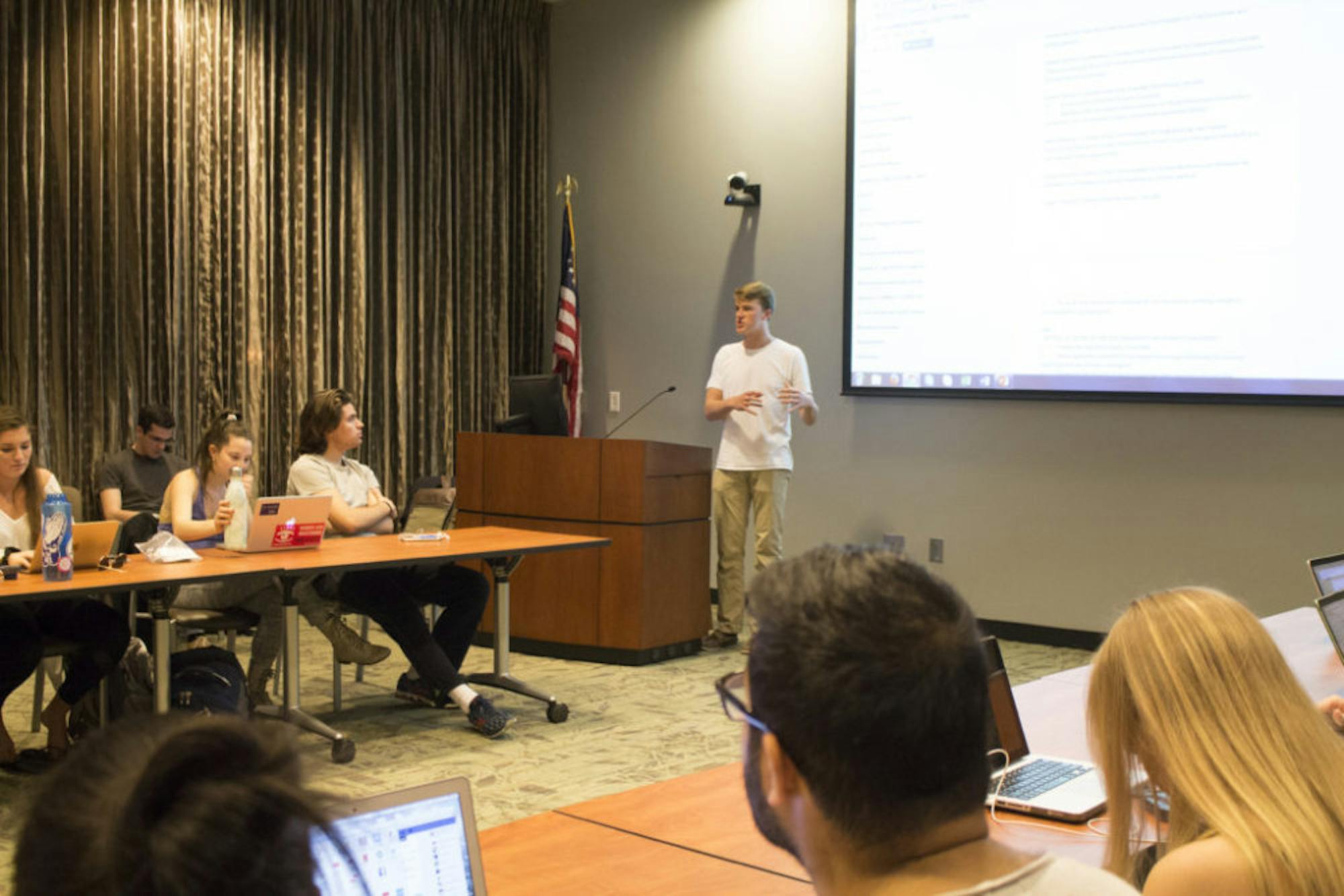
About 2.2 percent of the Emory undergraduate student body voted in the undergraduate-wide referendum on the Student Government Association (SGA) restructure bill, which passed 133-36 Wednesday night, according to Brendan Moriarty, OrgSync information systems coordinator.
The restructure bill amends the constitution that governed SGA prior to when the government split into two autonomous graduate and undergraduate branches.
Since the split, SGA had operated without a standing Constitution but followed the SGA Constitution as closely as possible, barring that it did not prevent legislators from passing a new undergraduate government structure, SGA President Max Zoberman (17C) told the Wheel in a Feb. 27 interview. Attorney General Christopher Lam (17B) said that the passage of the restructure bill means that the SGA Constitution is now fully active.
Bill 50sl26 went to an undergraduate-wide referendum after SGA voted for the second time on a restructure of the undergraduate legislature Monday night 19-1-0.
Lam wrote in a March 3 email to the legislature that the first restructure bill, Bill 50sl25, failed to pass a Feb. 27 vote through the legislature. Though SGA passed Bill 50sl25 by a vote of 14-1-0 Feb. 27, Lam said the Constitution requires at least 16 legislators — two-thirds of SGA membership — voting in favor of or against the bill for a valid vote.
“The [split] bill's passage by the referendum amended out all graduate officers from our membership and narrowed our constituency to undergraduates, but that was the extent of the effect it had on the Constitution,” Lam wrote in his email. “As such, Article X, [Section] A still holds.”
About 7,600 undergraduate students were able to vote through OrgSync on the restructure from March 13 at 9 p.m. to March 15 at 9 p.m.
With the implementation of the bill, the SGA legislature will have a 15-member structure, the Student Programming Council (SPC) president will no longer automatically serve as SGA VP of programming and the SGA VP of diversity and equity will be added to the executive cabinet. The bill also updated the language of the SGA Constitution to reflect the provisions of the split bill: the removal of graduate legislators and the addition the Joint Governance Committee, a body that will discuss University-wide matters.
College Council (CC) Liaison Taj Singh (17C) cast the sole vote opposing the bill as a proxy member voting on behalf of Speaker of the Legislature Justin Sia (17C). When asked why Sia voted against the bill, Singh directed the Wheel to Sia, who did not respond to request for comment.
College-wide Representative William Palmer (18C) said that SGA decided to remove the SPC president from the VP of programming position because “it’s kind of a conflict of interest to have the head of an executive agency serve in SGA, which oversees that agency.” The SPC president “has a lot on [his or her] plate running SPC” and “historically has not benefitted as much” from attending SGA meetings, Palmer added.
SPC will hold an internal election for its president this year, according to SPC President Ria Sabnis (17B).
Despite the low voter turnout for the undergraduate-wide referendum, SGA Executive Vice President Gurbani Singh (18B) expressed excitement that the bill passed. She credited the low voter turnout to an SGA publicity effort that paled in comparison to that of the split bill referendum.
Singh said that she is confident that the restructure will allow the 51st legislature of SGA to lead effectively.
“We’ve been talking to the four divisions [College Council, Emory Student Nurses Association (ESNA), BBA Council and Oxford] and they’ve been talking with their constituencies and seeing what works best for them [in regard to] how many people on SGA they want and what they want their representatives to look like,” Singh said.
Varun Gupta contributed reporting.
SGA Restructure Bill Passes Referendum, Voter Turnout Low
College-wide Representative William Palmer (18C) discusses the restructure bill, which he authored, at a Feb. 27 Student Government Association (SGA) meeting. / Michelle Lou, News Editor







